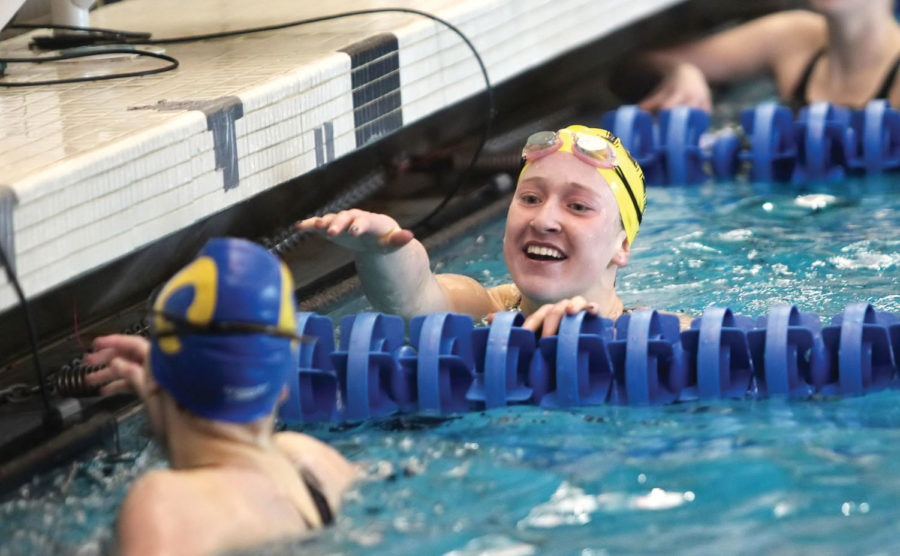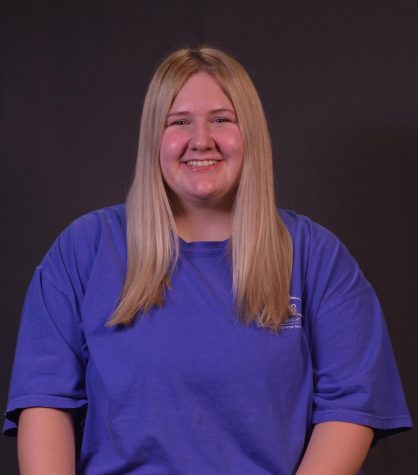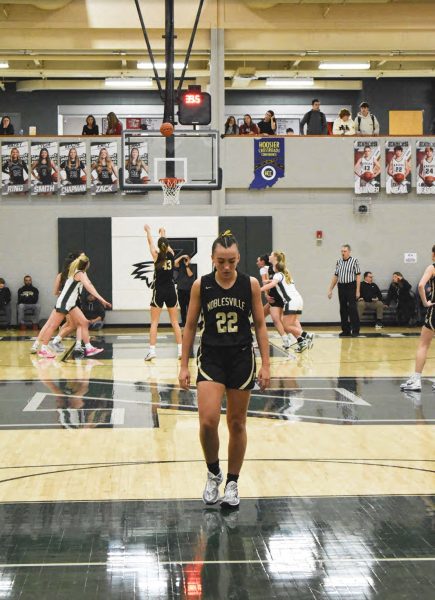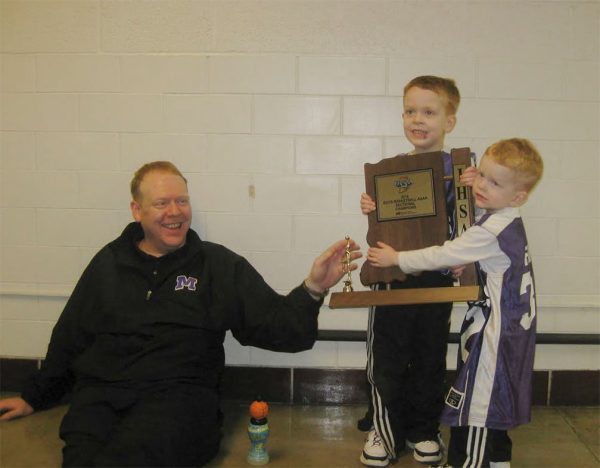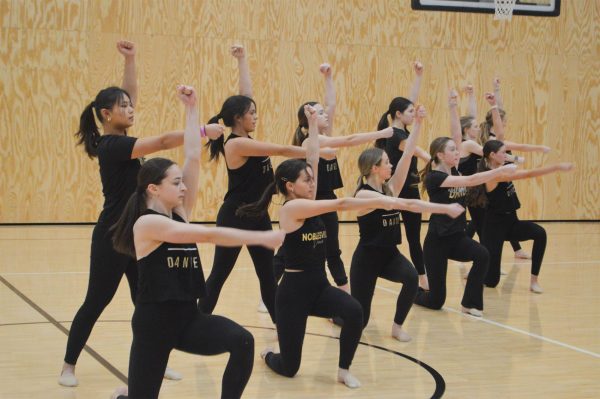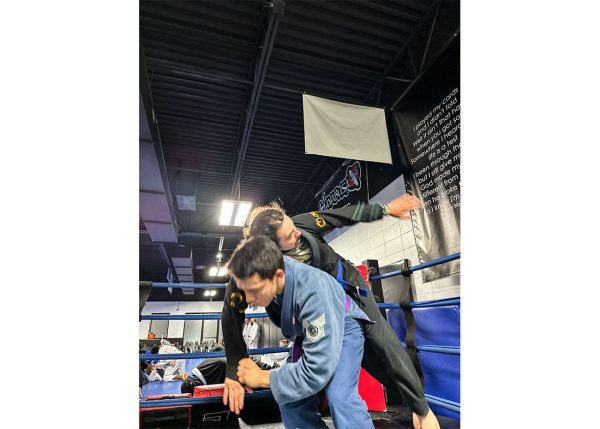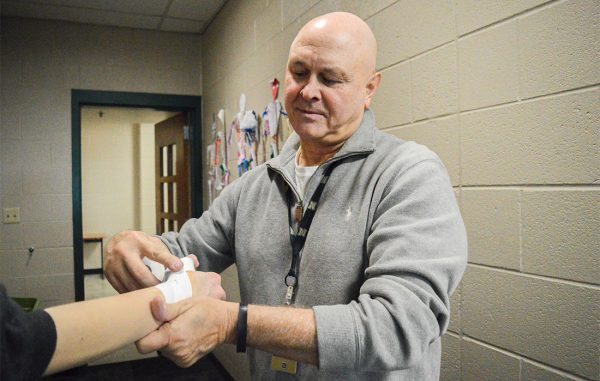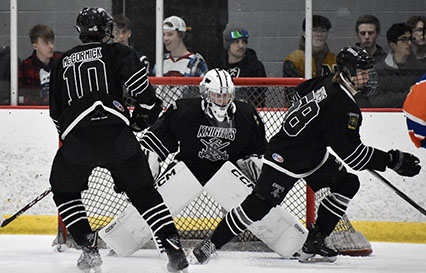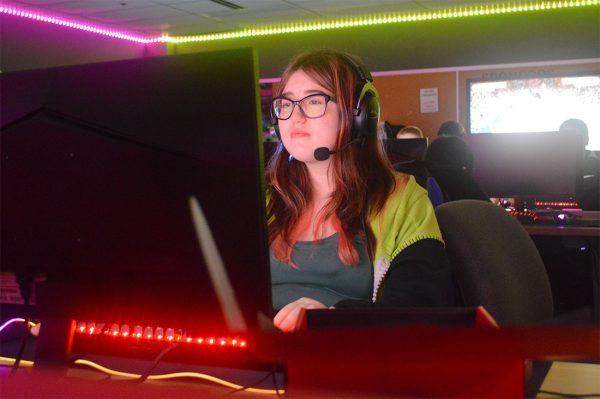Swimmer’s success: Junior Sammy Huff races her way to victory
Photo by Bret Richardson
Sammy Huff, NHS-100 breast sectional champion and state cut, reaches out to MacKenna Lieske from CHS.
November 15, 2019
All sports demand dedication and commitment, whether it’s competing independently or as a member of a team. It requires after-school practices that occur anywhere from two to five times a week. However, swimming is a sport that goes beyond even those hours. The NHS swim team works out fifteen hours a week, six days a week, hitting the pool at least once a day.
Sammy Huff is one of 42 girls on the NHS girls squad who devotes countless hours to the sport.
“Swimming takes up a lot of my free time and calls for a lot of sacrifices. I’m usually pretty tired from waking up at 5:30 everyday, but the workouts alone are very physically demanding and can wear me down over time,” Huff said. “I have to be very mindful with my time, or else I’ll be up all night doing my homework.”
Despite the mental and physical tolls the sport can take on the athlete, Huff loves the sport and says it’s all worth it.
“I always feel very nervous [when competing,] because I always have expectations and goals set in the back of my mind. I can get very hyped up and excited before races because I’m excited to compete,” Huff said.
Similar to any athlete, swim takes a lot out of the competitor, not just physically, but mentally as well. While some sports such as baseball and soccer require a tremendous amount of communication, other sports such as gymnastics can isolate competitors from the rest of the world, leaving them alone with nothing but their own thoughts. Swimming can be one of those sports, an activity that detaches one from society.
“Swimming is definitely a lot of physical work, but I would also say that it requires just as much – and maybe more – mental toughness. During practices, there will be hard sets and it is your job to stay positive and train your mind to think like that when times get tough. That will reflect back into meets and even just in your everyday life,” Huff said.
Wolfpack coach Aleks Fansler has been coaching the sport for 13 years. Fansler also recognizes the demanding aspects of all that time in the pool.
“What makes swimming different is that there is a huge lack of sensory stimulus. You stare at the bottom of the pool, you cannot hear or talk to your teammates when you are swimming. Your breathing is limited. During tough workouts it can be really challenging and in some ways lonely,” Fansler said. “Those things make swimmers mentally tough in ways that other sports may not. Swimmers have to spend a lot of time in their own heads, and that can be a scary place sometimes. However, it is that same lonely struggle that is what brings swimmers so close to one another outside of the pool or on the wall in between sets.”
Junior Emma Snyder has been swimming for seven years, four of which she has spent swimming alongside Huff while simultaneously forming a strong friendship.
“I swim because I like the atmosphere. I love all my teammates and how much fun we have. I love that everyday I can improve myself while also encouraging my teammates to do the same. [Huff] always gives 100 percent effort, no matter how hard it gets. She is constantly encouraging others and is a fun and outgoing person to be around,” Snyder said.
Fansler also recognizes the dedication Huff puts into the sport.
“I believe what really separates Sammy from others is how she applies her brain to what I am asking her to do. She doesn’t just swim back and forth. Every length of the pool she does has a purpose and a focus. Then once she puts her brain to those tasks, she holds herself to a high standard for executing the skills, drills, and sets,” Fansler said. “I rarely have to say anything to Sammy twice. I know if I ask her to do something, she will give it her best regardless how challenging or uncomfortable it will be.”
Huff’s commitment and love for the sport has been consistently acknowledged by her coaches and
teammates throughout her time at NHS. And she wants to take that commitment and love to a Division One program in college.
“I love the sport and it is all worth it in the end,” Huff said.


